Insights
Future Trends in B2B Marketing Teams for SMBs
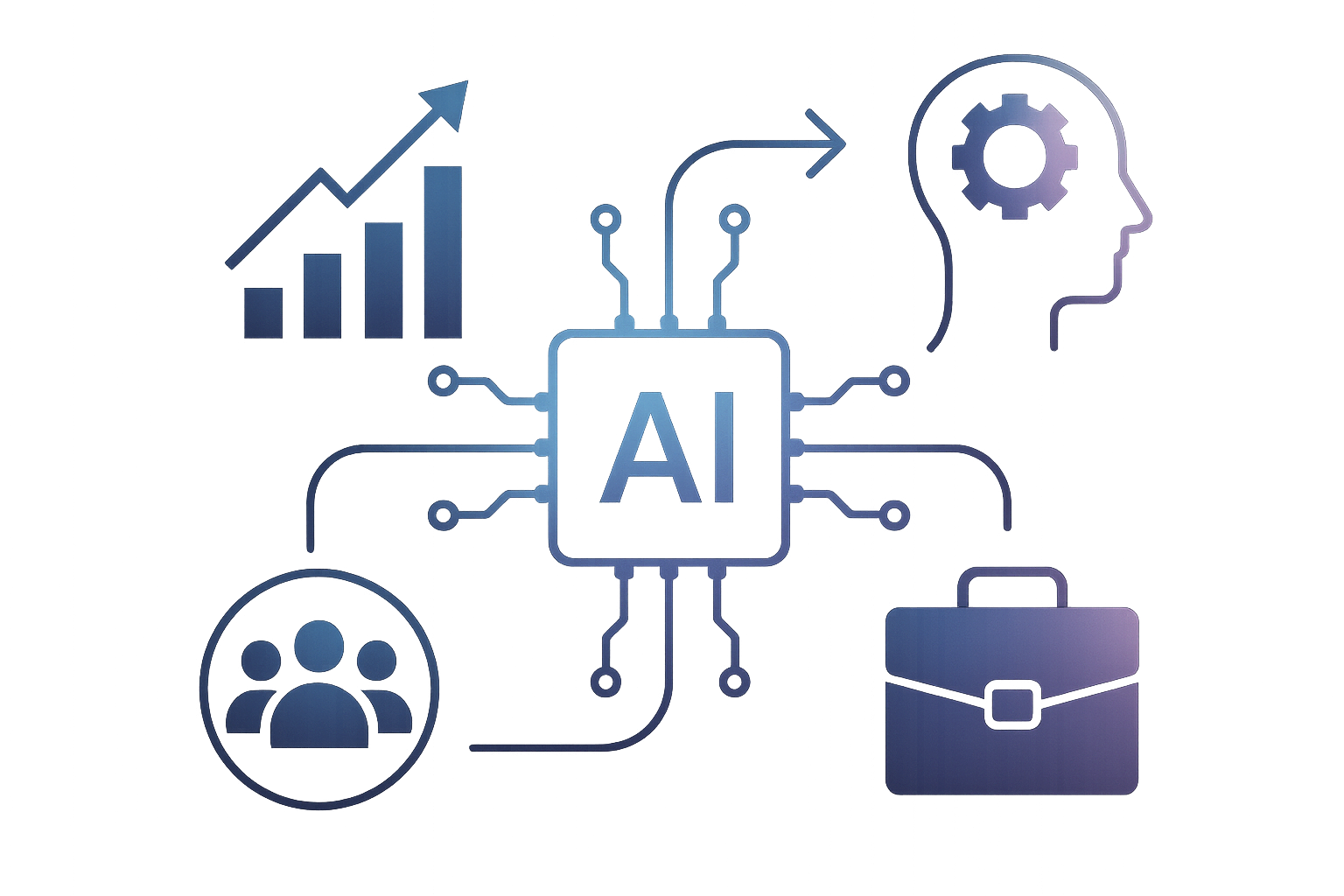
Key takeaways
- AI skills are now the #1 priority - 71% of employers prefer candidates with AI expertise over those with more experience but no AI knowledge
- Marketing teams are restructuring into agile pods that blend marketing, sales, and product functions for faster execution
- 88% of marketers already use AI daily, mainly for content creation, personalization, and analytics
- Traditional entry-level roles are disappearing while hybrid positions like "AI Content Strategist" and "Marketing Data Scientist" emerge
- SMBs are achieving enterprise-level personalization through affordable AI tools, with some seeing 600% improvement in response rates
- The modern marketer needs technical skills (AI, data analysis) plus stronger soft skills like collaborative problem-solving
- 55% of organizations now offer AI training to marketing staff to close skill gaps
The hybrid marketer: How skills are morphing in 2025
Marketing professionals aren't who they used to be. Today's B2B marketer at a small credit union or SaaS startup looks more like a data scientist who can also tell a compelling story. The shift happened fast - in just the past year, AI became the #1 skill marketers wanted to develop, ahead of strategy, SEO, and content creation.
Here's what's really happening: marketers are becoming orchestrators of AI tools rather than manual executors. Over half say their roles are changing due to AI, and 44% already use advanced tools like ChatGPT, Jasper, and Midjourney daily. But it's not just about knowing which buttons to press. The real skill is "prompt engineering" - knowing how to coax quality outputs from these systems.
Data skills have become non-negotiable too. Marketing teams need people who can wrangle customer data, set up automated workflows, and ensure compliance. Traditional marketing analysts? They're evolving into marketing scientists who interpret AI-driven insights rather than crunch numbers manually. In fact, 49% of companies say AI strategy development is their biggest skill gap.
But here's what surprised me - soft skills are actually becoming MORE important, not less. LinkedIn's latest data shows "Collaborative Problem-Solving" grew 138% in importance since 2021. Why? Because while AI handles routine tasks, humans need to excel at strategy, empathy, and innovation.
The result is a new breed of marketer who can jump between analyzing conversion data, crafting brand narratives, and managing AI tools - all before lunch. Nearly two-thirds of marketing leaders say half the skills in a typical marketing job have changed in just five years. If you're not actively learning, you're already behind.
For SMBs working with agencies like Magnet, this evolution means access to professionals who blend technical expertise with creative thinking - exactly what's needed to compete in today's landscape. Whether you need help with growth marketing or SEO services, having partners who understand both the technical and human sides of modern marketing is crucial.
What does this mean for your team? Start by auditing current skills against what's actually needed now. You might find your content writer needs basic data analysis training, or your analyst could benefit from storytelling workshops. The marketers who'll thrive aren't necessarily the most technical or most creative - they're the ones who can do both.
From silos to squads: New team structures taking over
Remember when marketing sat in one corner and sales in another? Those days are gone. SMB marketing teams are tearing down walls and building something entirely different.
The biggest trend is the rise of cross-functional "pods" - small teams that unite marketing with sales, product, or customer success around shared goals. Instead of marketing creating campaigns in isolation then "throwing them over the wall" to sales, a revenue pod might include a marketing manager, sales rep, content strategist, and project manager all working together from day one.
These pods improve collaboration and accelerate results by ensuring everyone's aligned. I've seen this firsthand - when a fintech startup restructured into pods, their campaign cycles shortened by 40% and lead quality improved dramatically. The pod owns the entire outcome, whether thats a product launch or hitting a regional growth target.
Even companies keeping centralized marketing are adopting agile practices. Daily standups, two-week sprints, rapid testing - these aren't just for software teams anymore. BCG found that agile marketing pods enable faster campaign cycles and higher ROI. Makes sense when you think about it - marketing channels and buyer behaviors change so fast that annual plans feel outdated by February.
The structure shift goes beyond internal teams too. Marketing is embedding deeper into other departments. Some SMBs now have "Chief Growth Officers" overseeing both marketing and sales. Others have marketers sitting directly with product teams. At two large credit unions, CMOs noted that personalization efforts required pulling in the CIO, data analysts, and digital product managers.
Remote work has made these flexible structures even more common. With 84% of marketers working remotely at least part-time, teams have to be intentional about collaboration. Virtual pods use tools like Slack and Notion to stay connected, with occasional in-person sessions for strategy planning.
The old org chart with rigid boxes and reporting lines? It's being replaced by something more like a network, with teams forming and reforming based on objectives. For professional services firms and other SMBs, this flexibility is becoming a competitive advantage. Law firms, healthcare organizations, and manufacturing companies are all experimenting with these fluid structures.
One community bank I spoke with went from a traditional hierarchy to three focused pods: acquisition, retention, and digital experience. Each pod has members from marketing, IT, and frontline staff. They meet daily for 15-minute check-ins and can pivot strategies in days rather than months. The results? 30% faster campaign launches and way happier employees who feel more connected to outcomes.
AI in action: Real workflows transforming daily marketing
Let's get specific about how AI is actually changing day-to-day marketing work. It's not science fiction - it's happening right now in SMB marketing teams across the country.
Content creation has been completely revolutionized. 93% of marketers using AI use it to generate content faster. A marketing manager at a small software firm can now prompt ChatGPT for five email variations, pick the best one, and refine it - all in minutes. But teams learned quickly that AI-generated content needs human editing. As one marketer told me, "AI gives us the clay, but we still need to sculpt it."
Personalization at scale used to be a big-company luxury. Not anymore. Machine learning models analyze behavior data to tailor messages for each prospect automatically. Central Willamette Credit Union used AI to deliver hyper-personalized offers and saw response rates jump 600%. That's not a typo - six hundred percent.
Lead scoring has gotten scary-smart too. AI-powered CRMs evaluate leads based on dozens of signals - website behavior, email engagement, company data - and predict conversion probability. Sales teams can focus on the hottest opportunities while AI nurtures the rest. Some systems even alert teams if a promising lead hasn't been contacted in seven days.
Campaign optimization happens in real-time now. AI adjusts email send times, reallocates ad budgets, and tests content variations automatically. Email platforms that use AI for send-time optimization see 2-3x higher engagement compared to blast campaigns.
What really impresses me is how AI handles the post-sale experience. Chatbots provide instant support, churn prediction models flag at-risk customers, and AI suggests upsell opportunities based on usage patterns. One SaaS company identified which customers were ready for higher-tier plans and timed their offers perfectly.
81% of marketers say AI helps them uncover insights faster. But here's the key - AI augments human work, it doesn't replace it. The tools handle data crunching and routine tasks while humans focus on strategy and relationships. Smart SMBs using Magnet's AI expertise understand this balance.
A real example: a B2B software company uses AI to analyze which blog topics drive the most qualified leads. The AI spots patterns humans miss - like how technical deep-dives convert better on Tuesdays, while case studies perform best on Thursdays. Armed with these insights, the two-person marketing team publishes content strategically and saw lead quality improve 40% in three months. They're competing with companies 10x their size by working smarter, not harder.
The talent scramble: Who's getting hired (and who's not)
The hiring landscape for marketing teams has flipped completely. Job postings that once asked for "5 years experience in content marketing" now demand hybrid skillsets that would've seemed impossible a few years ago.
Here's the shocking stat: 71% of business leaders would choose a candidate with strong AI skills over someone with more experience but no AI familiarity. Experience matters less than adaptability now.
Which roles are hot? Marketing Data Analysts who can build dashboards AND tell stories with the data. AI Marketing Specialists who evaluate and deploy tools for the team. And my favorite new title: "Creative Technologist" - someone who crafts compelling content while leveraging AI to scale it. Traditional job titles are morphing too. That "Digital Marketing Manager" posting now requires experience with predictive analytics and marketing automation platforms.
The in-demand skills reflect this shift. Job ads more than doubled requirements for machine learning and AI knowledge from 2022 to 2023 alone. But it's not just technical skills - 91% of employers now look for professional certifications when hiring marketers. Google Analytics, HubSpot, and AI-specific certifications carry real weight.
Meanwhile, some roles are fading fast. Data entry clerks who manually compile reports? Those tasks are automated now. Junior copywriters churning out product descriptions? AI handles that in seconds. Traditional market researchers running basic surveys? AI chatbots collect and analyze responses instantly. Even media buyers are evolving - experts predict AI will handle most digital media buying by decade's end.
But don't panic if you're in these roles. The smart move is to level up. That junior copywriter becomes an AI Content Editor who ensures brand voice stays consistent across AI-generated content. The market researcher evolves into an Insights Strategist who interprets what AI findings mean for business strategy.
New hybrid roles are emerging too. "RevOps Manager" is huge right now - someone who optimizes the entire revenue funnel across marketing, sales, and customer success. These folks need to understand marketing automation, CRM data, and AI analytics. Another hot role: "Prompt Engineer" for marketing teams. Yes, that's a real job now - crafting and refining AI prompts to generate better marketing content.
SMBs are getting creative with talent sourcing. With limited budgets, many blend in-house hires with outsourced specialists. 46% of marketing work was outsourced in 2024, up from 25% in 2020. They might keep strategy in-house but outsource PPC management or SEO services to specialists.
What really matters now? Continuous learning. 66% of marketing leaders say role requirements change faster than ever. The marketers who'll thrive treat learning like part of their job, not something extra.
Your new digital coworkers: Essential AI tools for SMB teams
Walk into any SMB marketing department today and you'll find AI tools everywhere. But which ones actually move the needle? Let me break down the essential toolkit that's transforming small teams into powerhouses.
Content creation leads the pack. ChatGPT has become as common as coffee in marketing departments. Teams use it for everything from blog outlines to social captions. But specialized tools like Jasper and Copy.ai offer marketing-specific templates that save even more time. One ecommerce client told me they create product descriptions 10x faster now - what took a full day now takes an hour.
Visual content got democratized too. Midjourney and DALL-E let non-designers create custom images. But the real winner for SMBs? Canva's AI features. It suggests layouts, removes backgrounds, and even writes copy. A solo marketer can produce professional graphics that used to require a design team.
CRM platforms went from databases to intelligent assistants. HubSpot's AI drafts follow-up emails and predicts deal probabilities. Pipedrive's AI Sales Assistant analyzes your pipeline and suggests next actions. Even Mailchimp uses AI to optimize send times for each subscriber individually. These aren't just features - they're like having a data scientist on staff.
Lead generation transformed completely. AI chatbots from Intercom or Drift qualify visitors 24/7. They ask smart questions, book meetings, and never take a coffee break. Interactive tools like involve.me create AI-powered quizzes that capture leads intelligently. One B2B software company replaced their static contact form with an AI chatbot and saw qualified leads jump 3x.
Analytics got an AI brain too. Google Analytics 4 alerts you to significant changes automatically. Tools like Clearscope and Surfer SEO analyze competitor content and tell you exactly how to outrank them. No more guessing what Google wants - AI reverse-engineers it for you.
Here's my practical toolkit recommendation for a typical SMB:
- Writing: ChatGPT or Claude (general), Jasper (marketing-specific)
- Design: Canva with AI features
- CRM: HubSpot or Pipedrive with AI add-ons
- Email: Mailchimp or Klaviyo
- Analytics: GA4 plus an SEO tool like Semrush
- Productivity: Notion AI or Microsoft Copilot
The explosion is real - 2,300+ new AI marketing tools emerged recently. But more tools doesn't mean better results. Smart teams pick a core stack that integrates well. A credit union might use Alkami's platform with built-in AI rather than stitching together 20 different tools.
Budget-wise, many AI tools offer SMB-friendly pricing. ChatGPT Plus costs less than lunch out. Canva Pro runs about $12/month. Even enterprise tools like HubSpot have starter packages. The ROI is usually obvious within weeks - 86% of marketers save at least an hour daily on creative tasks alone.
84% of senior marketing leaders now personally research and recommend new tech. It's become a core part of the job. The key is starting small - pick one workflow to improve with AI, measure results, then expand. Whether you're in professional services, education technology, or any other B2B space, the right AI tools can level the playing field.
Building tomorrow's team today: Practical steps forward
So how do you actually transform your marketing team for this AI-powered future? Here's the practical roadmap I've seen work for dozens of SMBs.
Start with a skills audit - but make it real. Don't just ask "who knows AI?" Get specific. Can your content person write effective prompts? Does your analyst understand how to interpret AI-generated insights? One software company I worked with discovered their senior marketer was secretly terrified of AI tools. A few training sessions later, she became their biggest AI champion.
Upskilling beats hiring right now. 71% of CMOs prefer retraining existing employees over hiring new ones. Your team already knows your business - they just need new tools. Set aside dedicated learning time. One agency blocks Friday afternoons for "AI experimentation." They test new tools, share discoveries, and collectively level up.
For tool selection, resist the shiny object syndrome. Start with one problem, find one tool to solve it. Maybe your content creation is the bottleneck - implement ChatGPT or Jasper first. See results, build confidence, then expand. A healthcare marketing team started with just an AI writing assistant. Six months later, they'd integrated five AI tools seamlessly into their workflow.
Budget doesn't have to be a barrier. Many AI tools offer free tiers or trials. Test extensively before committing. Calculate ROI by time saved, not just revenue generated. If an AI tool saves your marketer 10 hours a week, that's 25% of their time freed for strategic work. What's that worth?
Here's a realistic 90-day implementation plan:
- Days 1-30: Skills assessment and basic AI training for all team members
- Days 31-60: Pilot 2-3 AI tools in your biggest pain point areas
- Days 61-90: Measure results, refine processes, plan expansion
Cultural change matters as much as technical change. Address the elephant in the room - job security fears. Be transparent that AI augments, not replaces. Show how AI makes work more interesting by eliminating drudgery. The data entry person who embraced AI at one client? She's now their marketing operations manager, running systems she never could've managed manually.
Partner strategically too. If you lack internal expertise, agencies like Magnet can bridge the gap. They bring AI expertise, analytics capabilities, and growth marketing knowledge without the learning curve.
Don't forget governance. 85% of companies are developing AI usage guidelines. Set clear policies about content review, data handling, and brand voice maintenance. One financial services firm requires human review for all AI-generated content touching compliance topics. Smart guardrails prevent problems.
Measure everything. Track not just performance metrics but team satisfaction. Are people spending more time on creative strategy? Less on repetitive tasks? The best transformations improve both results AND job satisfaction. One surprising finding - marketers using AI report feeling more creative, not less, because they're freed from mundane work.
The human element: Why creativity still wins
Here's what all the AI hype misses - the most successful marketing teams are doubling down on human skills, not abandoning them. AI handles the heavy lifting, but humans provide what machines can't: genuine creativity, emotional intelligence, and strategic thinking.
Take storytelling. AI can write product descriptions all day, but can it craft a narrative that makes someone laugh, cry, or feel understood? I've yet to see it. The best AI-generated content still needs that human touch - the unexpected metaphor, the cultural reference that resonates, the timing that turns good copy into great copy.
Customer empathy remains irreplaceable. Sure, AI can analyze sentiment scores and predict churn probability. But understanding why a customer is frustrated, reading between the lines of their feedback, knowing when to break the rules to solve their problem? That's pure human territory. One B2B SaaS company told me their biggest wins come from marketers who actually use their product daily and understand customer pain points viscerally.
Strategic thinking separates good teams from great ones. AI can optimize within parameters you set, but it can't decide your parameters should change. It won't suggest pivoting your entire positioning because you noticed an underserved market segment. It can't see around corners or make those "crazy" connections that lead to breakthrough campaigns.
Relationship building stays stubbornly human too. In B2B especially, deals happen because people trust people. AI can identify the perfect prospect and craft the perfect email, but closing often comes down to that phone conversation or coffee meeting where genuine connection happens. The law firms and professional services companies winning today combine high-tech prospecting with high-touch relationship building.
Creative judgment might be the most critical human skill. AI generates endless options - someone needs to pick the winner. More importantly, someone needs to know when all the options miss the mark. I watched a team test 50 AI-generated taglines. The marketing director said "none of these work" and wrote one on the spot that perfectly captured their brand. No algorithm would've gotten there.
Teams that blend AI efficiency with human creativity are unstoppable. They use AI to handle data analysis, first drafts, and routine tasks. Then humans add strategy, emotion, and that indefinable spark that makes marketing memorable. It's not human vs. machine - it's human with machine, and that combination is powerful.
The irony? As AI handles more mechanical tasks, being genuinely human becomes your competitive advantage. The teams investing in both AI tools AND human development - creativity workshops, strategic thinking training, even improv classes - are pulling ahead. Because at the end of the day, people buy from people, even in our AI-powered world.
Looking ahead: What's next for B2B marketing teams
The pace of change isn't slowing down. Based on what I'm seeing in forward-thinking SMBs, here's what's coming next for B2B marketing teams.
AI agents are the next frontier. Not just tools that help when you prompt them, but autonomous agents that handle entire workflows. Imagine an AI that monitors your website traffic, spots a trend, creates a campaign to capitalize on it, and only checks in for final approval. Early versions exist, but by 2027, they'll be standard. Marketing teams will shift from doing tasks to managing these digital workers.
Hyper-personalization will reach new levels. Today's personalization feels impressive - customized emails, dynamic websites. Tomorrow's will be almost telepathic. AI will predict what a prospect needs before they know it themselves. One fintech startup is already testing AI that adjusts their entire website in real-time based on visitor behavior. Not just swapping images - restructuring navigation, rewriting copy, even changing the core value proposition.
Video and voice AI will explode. Creating custom video content for each prospect sounds impossible today. In two years? Routine. AI avatars that look and sound like your best salesperson, delivering personalized pitches at scale. Voice AI that can handle discovery calls, qualify leads, book meetings. The human touch remains for closing, but early-stage interactions will be increasingly AI-powered.
Skills will continue evolving rapidly. "AI Psychology" might become a real marketing discipline - understanding how to get the best from AI systems, almost like managing temperamental talent. Data ethics will be huge as privacy concerns grow. And creative directors who can orchestrate AI-generated content into cohesive campaigns? They'll be worth their weight in gold.
Team structures will become even more fluid. Project-based assemblies of humans and AI agents, forming and disbanding as needed. The concept of a "marketing department" might fade entirely, replaced by growth-focused pods that blend disciplines. Geographic boundaries dissolve further - that perfect specialist might be halfway across the world, collaborating through AI-enhanced tools we can't imagine yet.
What should you do now to prepare? First, embrace continuous learning as a core value, not an add-on. Budget time and money for experimentation. Build relationships with forward-thinking partners like Magnet who can help you navigate changes. Most importantly, maintain balance - invest in both technological capabilities and human development.
The winners won't be the companies with the most AI tools. They'll be the ones who thoughtfully blend artificial intelligence with human insight, who use efficiency gains to become more creative rather than just faster. Whether you're in manufacturing, non-profits, or entertainment, the principles remain the same: augment your human talent with AI, don't try to replace it.
The future of B2B marketing teams isn't about robots taking over. It's about humans and machines collaborating to create marketing that's more personal, more effective, and ironically, more human than ever before. The teams starting this transformation today will be the ones leading their industries tomorrow.
Frequently asked questions
What AI tools should a small B2B marketing team start with?Start simple with ChatGPT or Claude for content creation, Canva for design, and whatever AI features your current CRM offers. Master these before adding more tools. Most SMBs see immediate ROI from just these basics. Focus on solving your biggest bottleneck first - whether that's content creation, data analysis, or lead management.
How can we prepare our team for AI without scaring them about job loss?Be transparent that AI augments rather than replaces human work. Show specific examples of how AI eliminates boring tasks so people can do more strategic, creative work. Invest in training and give everyone hands-on experience with AI tools. The marketers I've seen embrace AI fastest are those who realize it makes their jobs more interesting, not obsolete.
What's the real ROI of implementing AI in marketing?Most teams see 25-40% time savings on routine tasks within the first month. But the bigger ROI comes from what you do with that saved time - more strategic campaigns, better customer relationships, faster testing and iteration. One client tracked a 300% increase in content output with the same team size, plus higher quality because humans focused on strategy rather than execution.
Should we hire new people with AI skills or train our existing team?Research shows 71% of CMOs prefer training existing staff, and I agree. Your current team knows your business, customers, and culture. They just need new tools. Plus, 55% of organizations now offer AI training, so you're not alone. That said, if you're hiring, absolutely prioritize AI familiarity - it's become table stakes.
How do we maintain our brand voice when using AI for content?Create detailed brand guidelines and prompts that capture your voice. Have humans review and edit everything AI produces. Many teams designate a "brand voice champion" who ensures consistency. Think of AI as a junior writer who needs coaching - it gets you 70% there, but that final 30% of personality and nuance requires human touch.
What happens to entry-level marketing roles with all this automation?They're evolving, not disappearing. Instead of data entry or basic copywriting, entry-level marketers now manage AI tools, interpret insights, and focus on creative problem-solving. The "assistant" role becomes more strategic - less about executing tasks and more about optimizing AI-driven processes. It's actually more interesting work for those starting their careers.
How much should we budget for AI tools and training?Most SMBs spend $200-1000/month on AI tools, but you can start much smaller. Many tools offer free tiers. Budget at least 10% of your marketing operations budget for AI tools and another 5-10% for training. The investment pays back quickly - usually within 2-3 months through time savings alone.
When will AI actually replace marketing jobs?It won't - but it will replace marketers who don't use AI. The future is human+AI collaboration. AI handles data processing, content generation, and routine optimization. Humans provide strategy, creativity, emotional intelligence, and judgment. The most successful marketers will be those who best leverage AI as a powerful assistant, not those who compete against it.
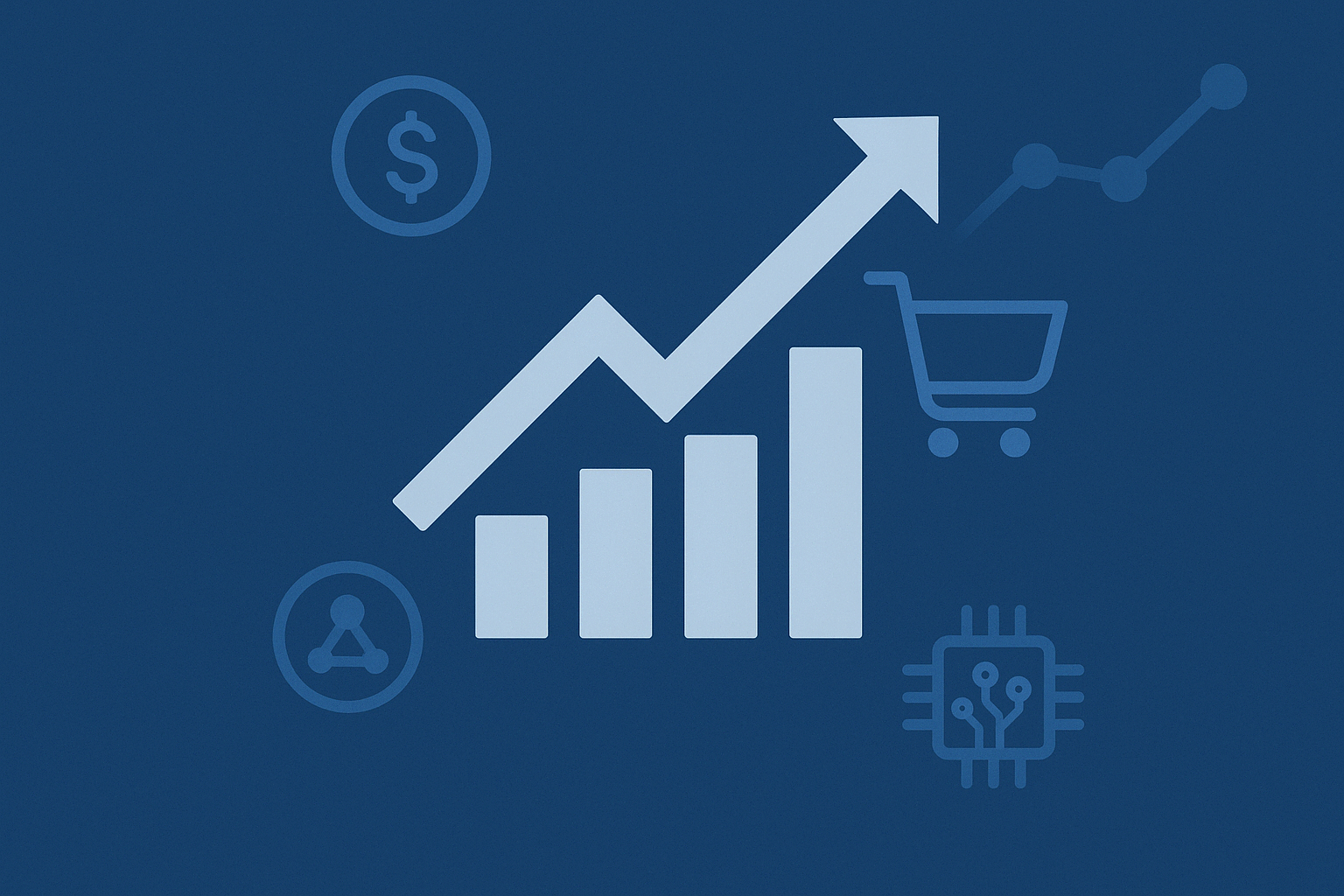
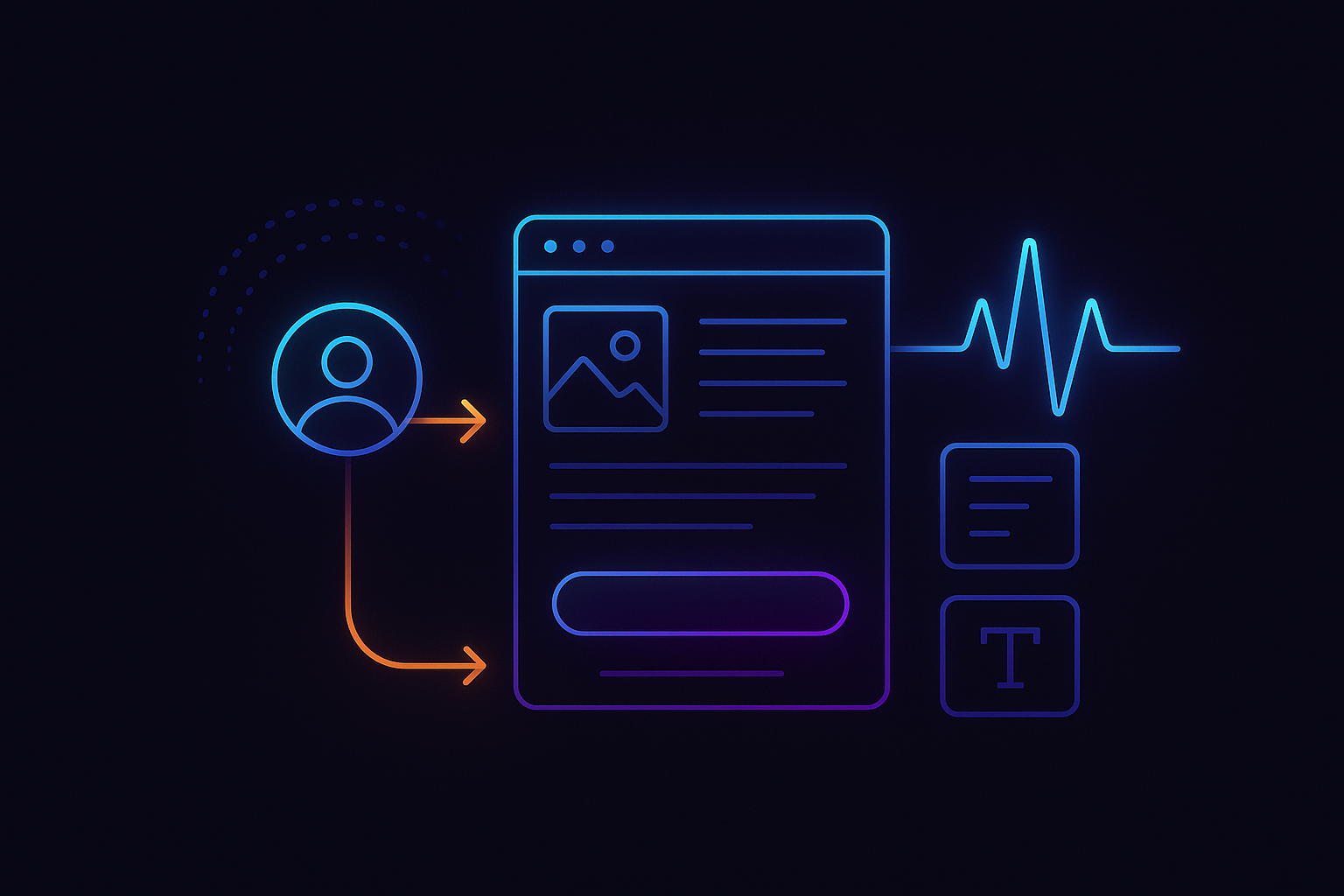
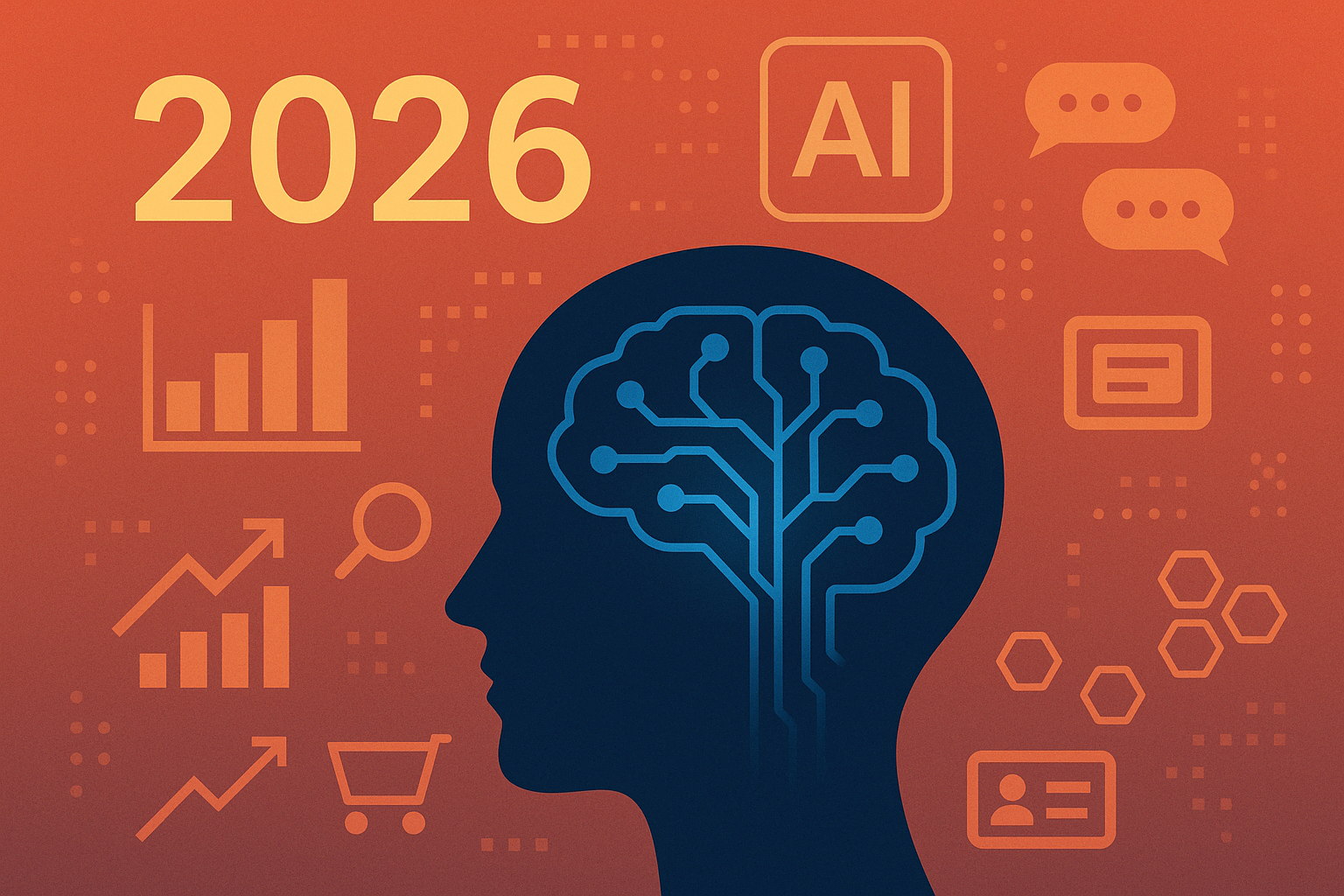


















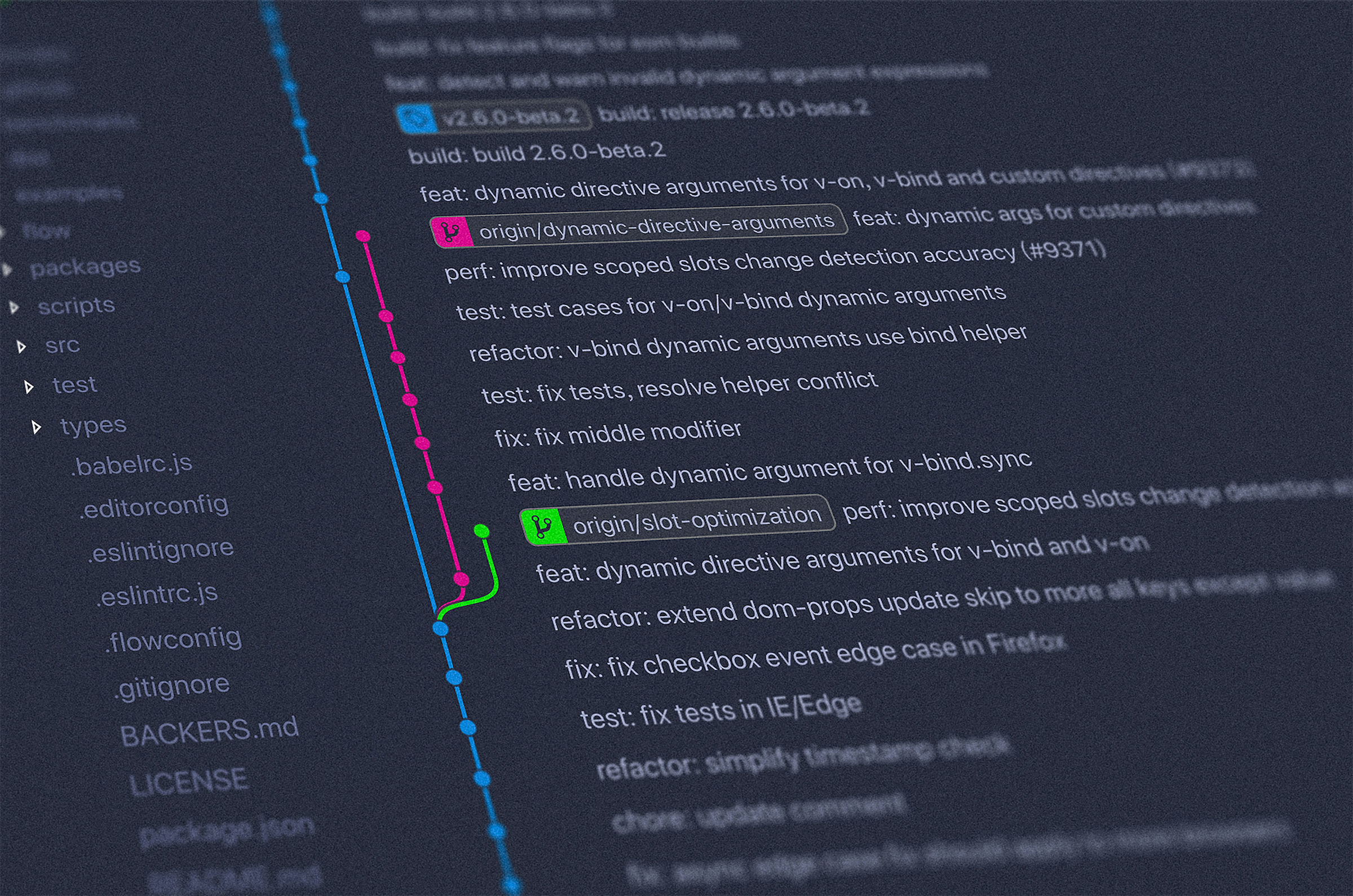






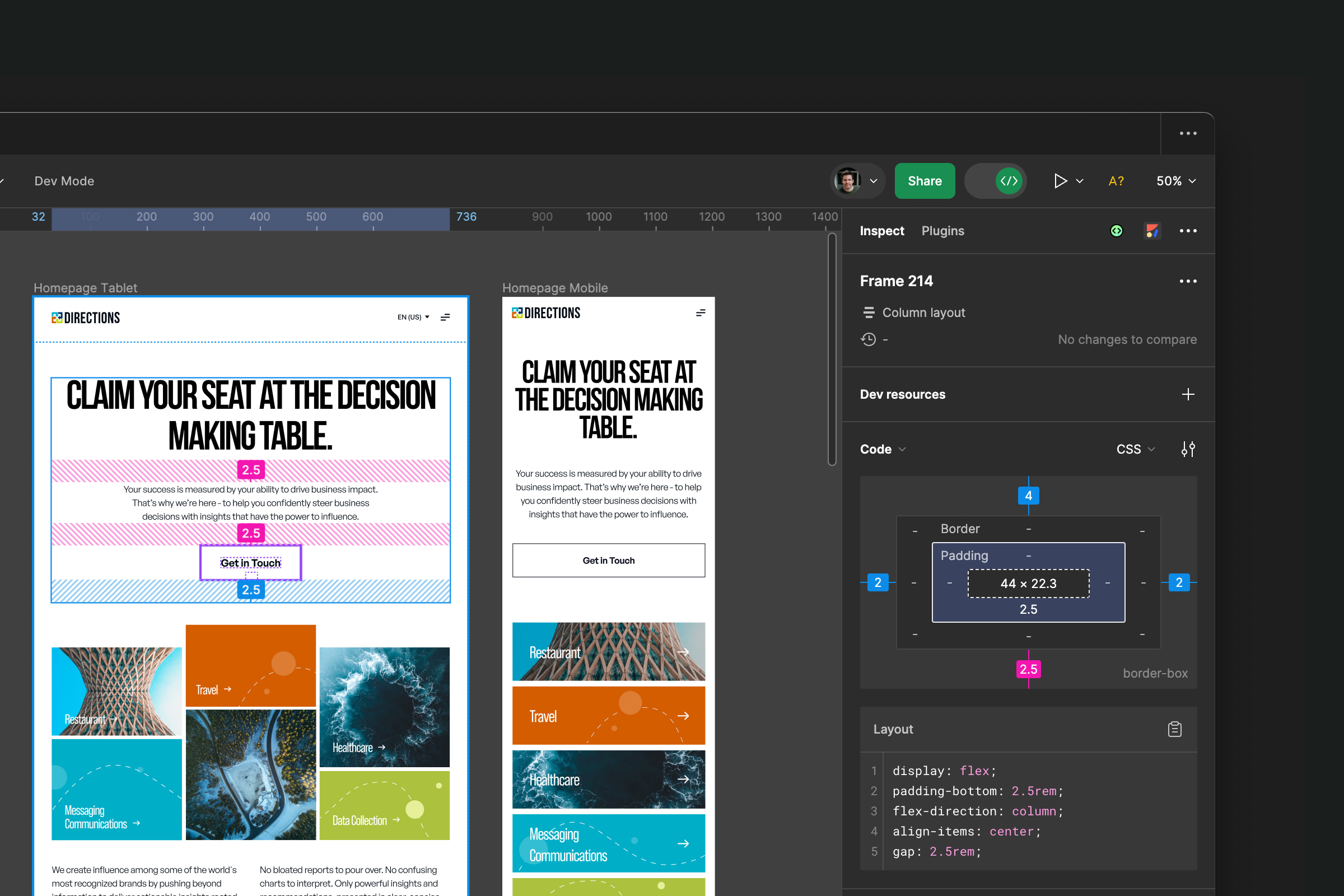
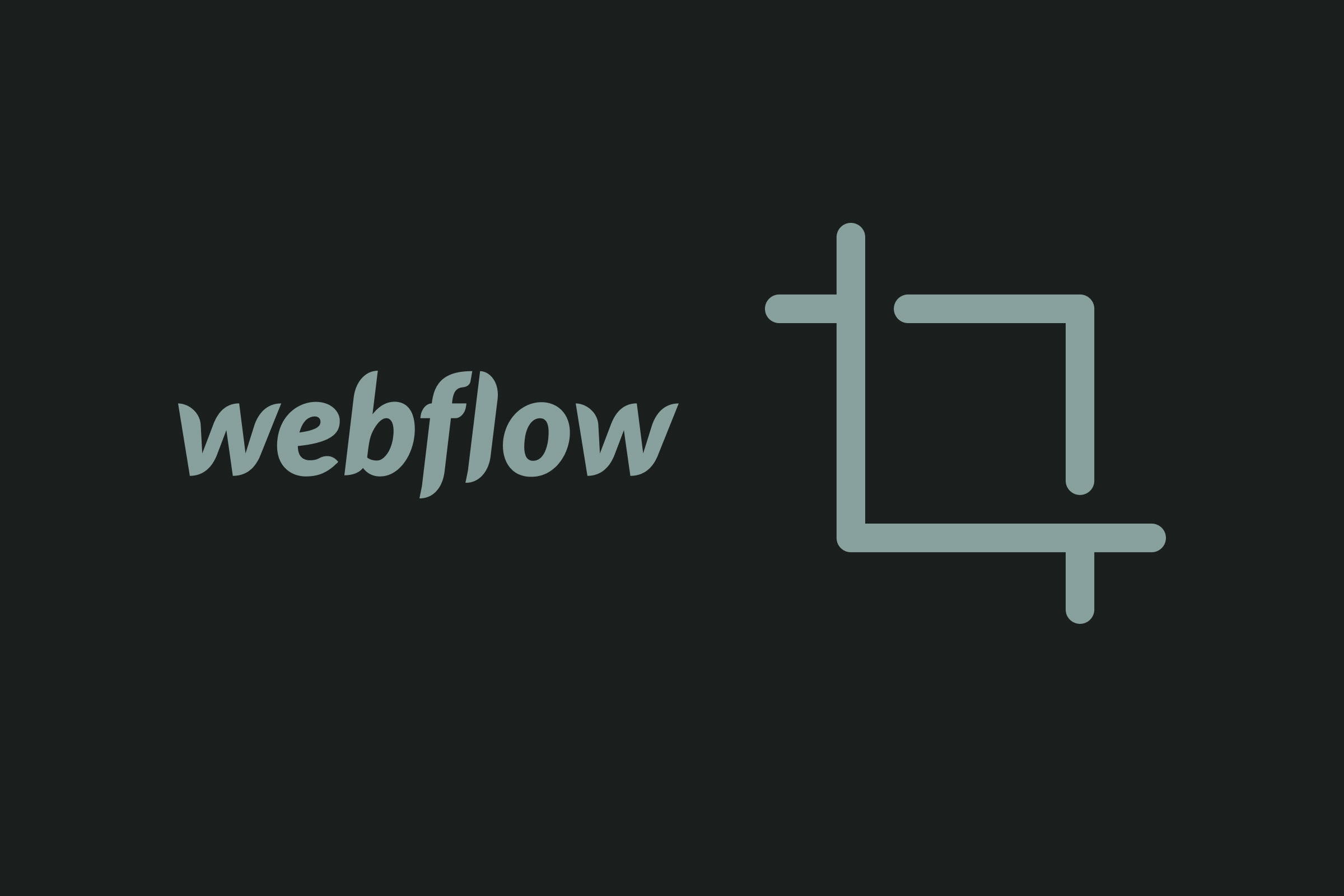





.jpeg)




.jpg)

.jpg)



.jpg)
